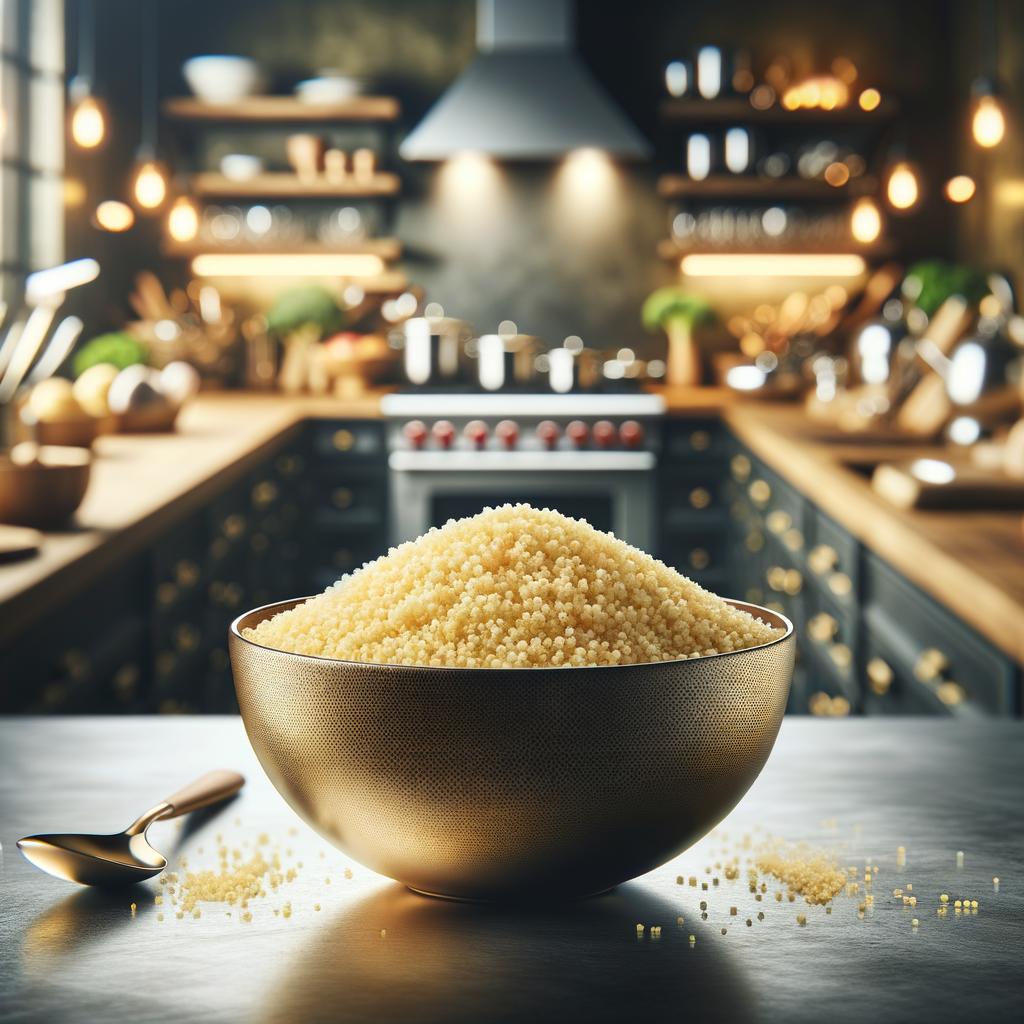Couscous

Description
Couscous, a staple food known for its versatility, is a type of pasta made from semolina flour, which is derived from durum wheat. It's characterized by its tiny, granular appearance, similar to grains of sand. Each bead is soft yet firm to the touch, and when cooked, it swells and becomes delightfully fluffy, offering a unique mouthfeel that's both light and satisfying. Its flavor profile is mildly nutty and earthy, providing a subtle canvas that readily absorbs the flavors of the ingredients it's paired with. What sets couscous apart from other pasta is its extraordinary ability to soak up sauces and spices, making it a culinary chameleon of sorts.
Primary Uses
Couscous is a culinary superstar, used extensively across a variety of cuisines, particularly North African, Middle Eastern, and Mediterranean. It's often served as a side dish, accompanying tagines, stews, and grilled meats, where it absorbs the rich flavors and juices. It's also used in salads, mixed with a medley of vegetables, herbs, and a tangy vinaigrette for a light, refreshing meal. In some cultures, it's even sweetened and served as a dessert. Beyond its culinary uses, couscous carries significant cultural weight, especially in North Africa where it's a symbol of hospitality and abundance.
History
Couscous has a rich and romantic history that traces back to the Berber people of North Africa, where it's believed to have been first prepared as early as the 7th century. It was traditionally hand-rolled, a labor-intensive process that was often a communal activity, fostering a sense of togetherness and community. Over time, couscous spread across the world, its popularity growing with each culture it touched. It's now celebrated globally, not just for its culinary versatility, but also for its fascinating history filled with tales of trade, migration, and cultural exchange.
Nutritional Information
Couscous is not just a culinary delight but also a nutritional powerhouse. It's rich in protein, dietary fiber, and B vitamins, contributing to a healthy diet. It also contains essential minerals like selenium, a powerful antioxidant. Its health benefits include supporting digestion, promoting heart health, and providing a steady release of energy. Compared to other grains like rice or quinoa, couscous cooks faster and is lower in calories, making it an excellent choice for those seeking a quick, healthy, and satisfying meal.

